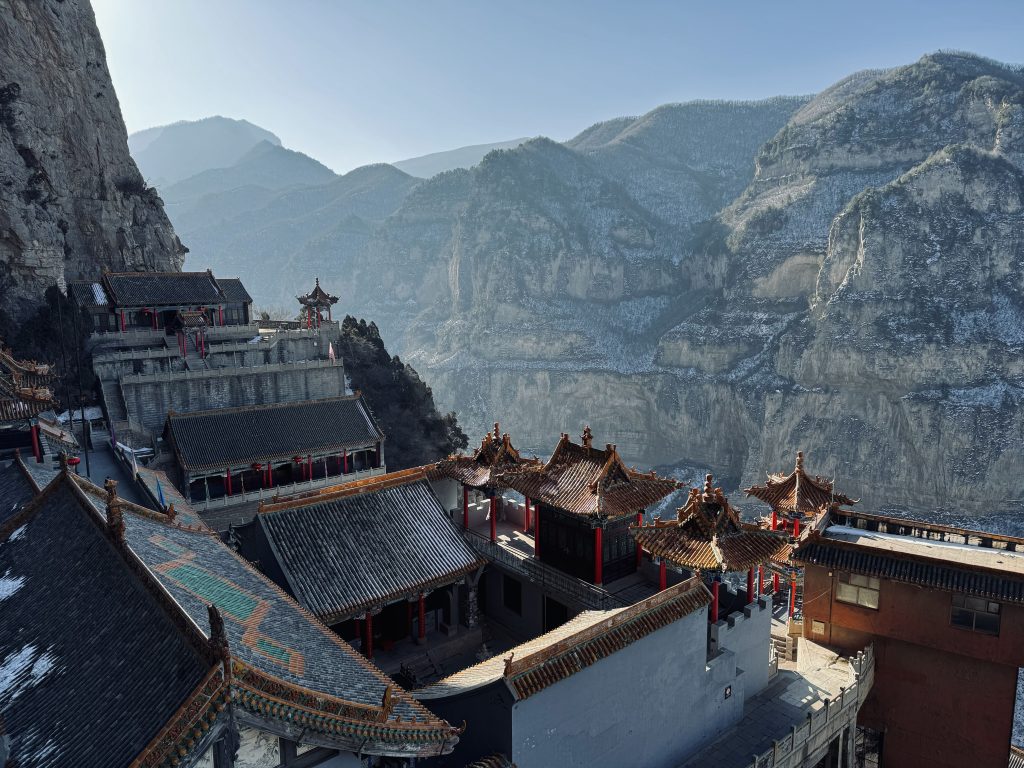
Contact
20 February 2024
Hong Kong, HKSAR
Around this time, or just a little bit after, four years ago, I would be sitting at the far end of my Hong Kong apartment; the intense rays of the early spring sun soaked the ersatz wooden table and lit up the white cloth notepad into which the first measures of Russia: Today (2020) were written. There wasn’t much to do outside as Hong Kong struggled with the ‘first wave’ of the pandemic, with locals hopelessly cowering in fear and stocking up on toilet paper, but to write music, and within a month and a half, that entire hour-long composition, now having graced the New York Times and beyond, was completed. I’m thinking of those somewhat-lonely, surreal days as I set out on the new string quartet, a piece far shorter, but with seemingly just as many notes. Same place, same sun, same white cloth notepad. Just that the world outside has (mercifully) moved on and so have I. Perhaps the music has, too.
The above photo comes from Mianshan, a group of Taoist monasteries and other religious structures deep in Shanxi province- even on the absurdly busy Chinese New Year holidays, it was somehow empty in the morning, like a postcard, or even better- like a dream. The dry mountains covered in specks of snow, the deepening silence of each successive layer of the temple structures, the reprieve from modern society which has invaded even the most ancient places, seemed like a mirage. There is an interesting parallel, a paradoxical unity, with the act of composition. I attempt to find an utter silence to ‘receive’ a new creation, which is truly born out of what is both a vacuum and an impossibly messy inner self, and yet around me, and the world into which this new work is born, is a cacophony and a crisis, too. So this is also how I explain to myself why increasingly, tonality makes so much sense: tonality at the cost of complexity and cacophony, or maybe is it vice versa? One can tolerate the other as long as there is a reprieve, a Mianshan.
The new piece, it doesn’t have the absolute tragedy of Vivacissimo (2023), an emotional cry that I didn’t even realise I had written until I heard it premiered this past December. It has something else, though. I’m barely a minute and a half into the music, so I can’t really tell you yet how it goes, but it is an anxiety, a tension, maybe it gives up or it holds on. When I wrote my first String Quartet (2013) over a decade ago, it ended in a sort of a holy postlude. This one would be lucky to find its resolution at the last breath.

